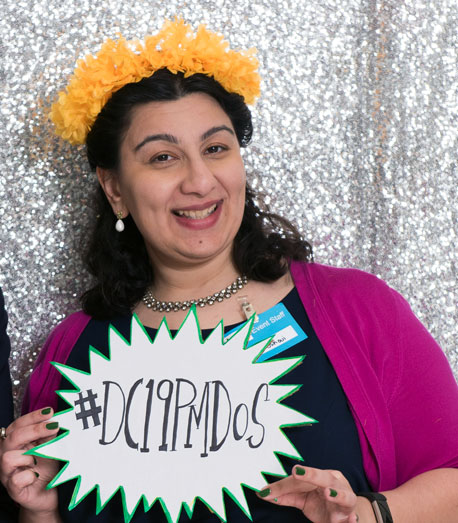
“Part 3: A Reflection on My EMS Experience” by Rizwan Oskoui
Hello again, dear readers! This is the end of the series and, as many literary journeys go, this one is going to end on a slightly sentimental note. I’ve been part of Executive Management Service (EMS) Cohort #1 since September 2020; it’s only fitting that I wrap up this experience with a reflection on my personal trek. Grab your caffeine source of choice, a biscuit, and a chair.
For starters, I really just applied to the program on a whim; I didn’t actually think I’d make the cut. If you’re questioning why someone would nonchalantly say this, I present the following evidence:
- I had just completed my application for the PMP exam and was slated for a 4-weekend boot-camp in September. The first EMS class was…you guessed it…the first week in September.
- The nonprofit I support, Project Management for Change, was slowly working to shift their annual DC event from in-person to virtual. As a Director, I would help ensure that both staff and attendees received the closest thing to a normal event experience as possible.
- I have a solid 12 years of professional experience where no one’s actually told me I’m good at anything. In fact, I was once told my Masters was a waste of time. By a manager.
- I am naturally an introvert, and am happiest being a wallflower. Or the Wizard of Oz. My leadership style is to quietly invest in the team while avoiding the spotlight.
At the very least, I figured I’d learn where my application fell short and then try again for the next cohort. What I didn’t account for was that little saying, “the best laid plans of mice and men often go awry.” Thanks, Robert Burns.
I very quickly learned, after the shellshock of being accepted wore off, that the only way I was going to survive the next six months was by learning to breathe. Not just practicing meditation during my lunch hour, but actually slowing down and taking the time to understand what each class meant, both personally and professionally. Somewhere along the way, I became the engagement manager for my contract. Each class, each homework assignment, each client interaction was boiled down to three simple questions: how else could that have been handled (good/bad/otherwise), how does this change how I view myself, and how can I translate that into a benefit for my team/client?
It was in one of these sessions that the whole idea of a professional mindfulness series was born: a budding attempt to inspire reflection on the two most fundamental realizations, while saving the reader several hours of frustrated coloring and countless boxes of Kleenex. In short – my loss of professional baggage can be your gain of nuggets of simplicity. There were plenty of times where I wondered if this was what the hobbits felt like on their way to Mount Doom. Then I remembered that that was a twelve-hour movie trilogy, and this was a significantly longer period of time.
So what exactly did all those evenings of introspection uncover? Sometimes, more than I was comfortable with working through in one shot. Those are the nights when your best friend is a couple sheets of paper and a handful of markers. Word clouds, by whatever artistic definition, are a great way to collect keywords over a period of time. If you’re visual, use colors to convey how something makes you feel. I promise, it’s not as crazy an idea as it sounds.
I performed the word cloud exercise on grid paper multiple times over the course of the program. It’s a great way to trick the brain into slowing down and focusing on the moment. The more I drew, the more each page boiled down to a single point: I believed that I had no voice. In the bigger picture, this can be a major problem. The longer someone is allowed to be believe this, the longer their community goes without a point of view which could bring them to new ground and greater maturity.
Take a moment to think of project implications if one stakeholder’s voice isn’t heard. Maybe your deliverable isn’t accepted. Maybe a risk is missed (or even worse, an opportunity), and in the fast pace of client environments, these can be easily overlooked. Even in the professional space, Donne’s words on community (“No man is an island.” See Part 2.) ring true.
Last night, I taped all my word clouds to a wall and stared at them, looking back at where I’d been and how far I’ve come. Each page whispered the wisdom gained from those who took the time to see me as a person and help me along the way. If you cannot be confident in anything else, remember your ability to learn. Pause a discussion to ensure everyone has a voice. If you don’t feel like you have a voice, find someone or something that can speak for you. If you are faced with a professional situation that makes you want to run, take a deep breath and simply be in the moment and find your strength. Be the person you wished you had accompanying you on your journey. Be open to the wisdom of those less experienced than you. When in doubt, doodle it out – stick figures optional.
Oh yes, and if you see a chance, take it!


